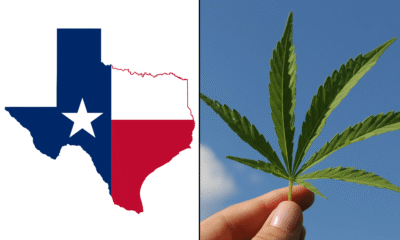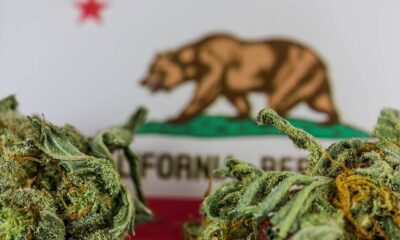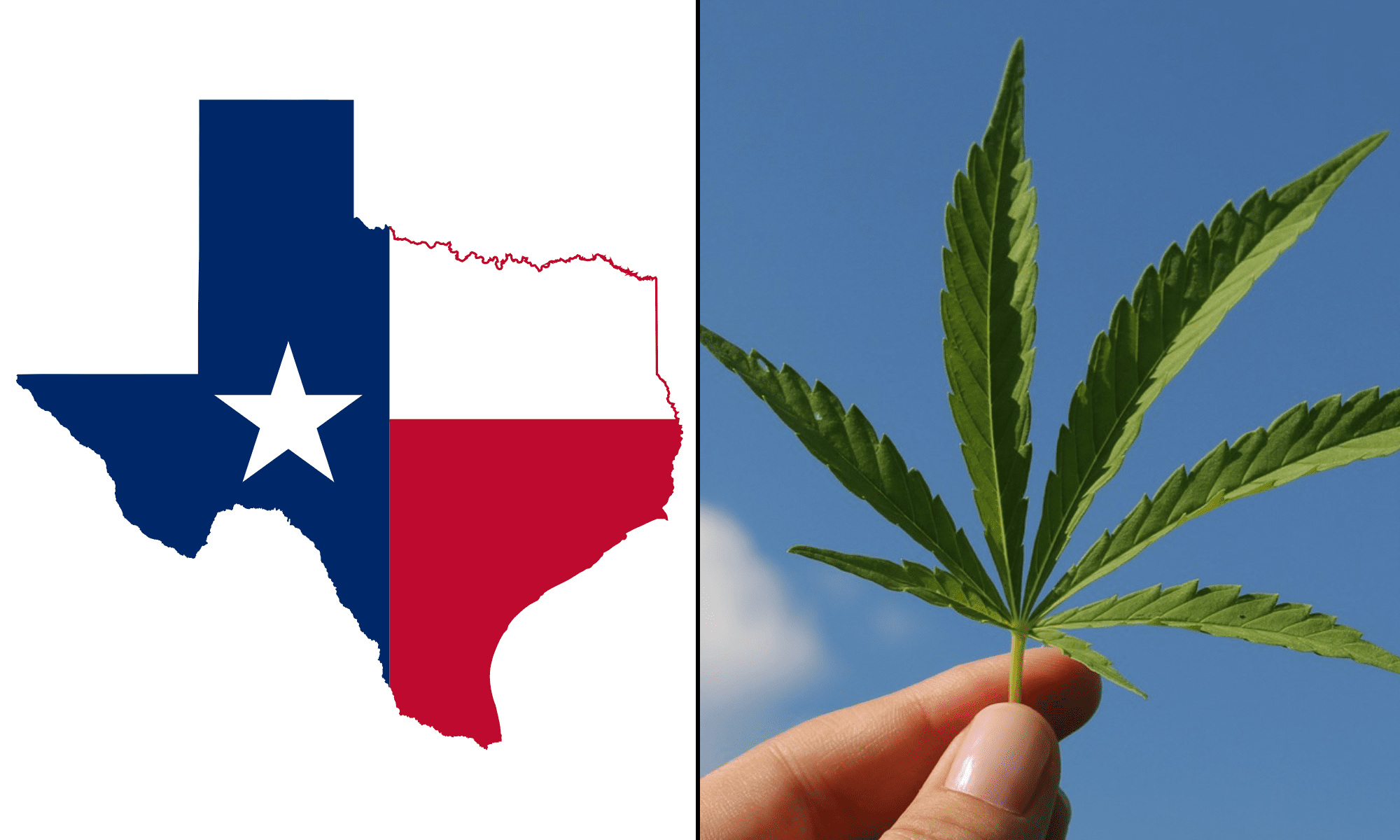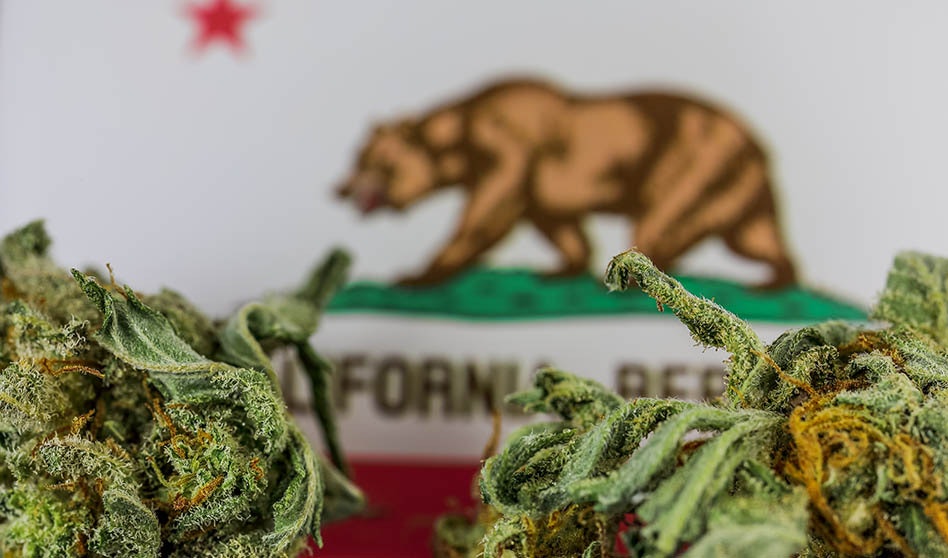featured
Missouri Shangri-La Dispensary Workers Officially Free of Unwanted UFCW Union Boss ‘Representation’
Published
2 weeks agoon

[PRESS RELEASE] – COLUMBIA, Mo., Sept. 2, 2025 – The National Labor Relations Board (NLRB) has just issued an order that officially removes United Food and Commercial Workers (UFCW) Local 655 as the exclusive “representative” of a unit of Shangri-La dispensary workers. The order makes official the workers’ victory in their legal effort to remove UFCW union officials from their workplace.
The case started when Travis Hierholzer, with free legal aid from National Right to Work Foundation staff attorneys, filed his petition with the NLRB requesting a “decertification” election to remove UFCW union bosses at his workplace. Hierholzer’s petition was signed by nearly all of his fellow workers at the dispensary. The filing of the petition triggered an election process to determine whether the UFCW would remain the dispensary workers’ exclusive representative.
The NLRB is the federal agency tasked with enforcing federal labor law and with adjudicating disputes between employers, unions and individual workers. Workers are able to initiate an election administered by the NLRB if their petition gathers the signatures of 30% or more of their fellow employees.
The election was close to being scheduled in September among all full-time and regular part-time patient consultants, patient consultant supervisors and inventory specialists employed at the Columbia, Mo., dispensary. However, rather than proceed with the election, UFCW union bosses apparently decided to avoid the embarrassment of a nearly unanimous vote by workers against them, instead “disclaiming” their status and removing the union as the dispensary’s so-called representative.
Missouri is one of the 24 states without Right to Work protections that make union affiliation and dues payment fully voluntary, meaning Hierholzer and his coworkers could have been forced to pay dues or fees to UFCW union officials or else be fired. Now that the union has been officially decertified, union officials lack the authority to impose a forced-dues requirement on the employees.
“Workers across the country, and especially in states where union bosses can force them to pay dues or else be fired, continue to exercise their legal right to free themselves of unwanted union representation,” stated National Right to Work Foundation President Mark Mix. “The National Right to Work Foundation will continue to stand up for American workers wherever they may be, by providing free legal aid to help defend their rights and remove unwelcome union bosses from their workplace.”

Author: mscannabiz.com
MScannaBIZ for all you Mississippi Cannabis News and Information.
You may like
-


Texas Supreme Court Refuses To Take Up Marijuana Case Challenging State’s Rejection Of Local Decriminalization Law
-


California Passes Bill to Ban Intoxicating Hemp Products Outside Cannabis Market
-


Pending Federal Hemp Legislation Could Reshape The Legal Industry By Banning Some Products (Op-Ed)
-


Verano Proposes to Redomicile Parent Company From British Columbia to Nevada
-


8,000 cannabis plants seized from illegal Bradford grow-op
-


New York Lawmakers Schedule Psychedelics-Focused Hearing To Discuss ‘Medicinal Value And Risks’ Of Psilocybin
featured
Texas Supreme Court Refuses To Take Up Marijuana Case Challenging State’s Rejection Of Local Decriminalization Law
Published
30 minutes agoon
September 15, 2025
The Texas Supreme Court has declined to take up an appeal of a case concerning the state’s overturning of a local marijuana decriminalization law that was approved by voters in the city of San Marcus.
About five months after the state Fifteenth Court of Appeals rejected a lower court ruling that denied a temporary injunction to prevent the law from being enforced, the state Supreme Court on Friday sidestepped the case.
“The Texas Supreme Court refused to hear this case, siding with Greg Abbott’s handpicked judges and telling 82 percent of San Marcos voters their voices do not matter,” Catina Voellinger, executive director of Ground Game Texas, which was behind this and multiple other local reform measures, said.
“This is not just about marijuana. It is about whether working Texans get to make our own decisions, like the Texas Constitution says we should,” Voellinger said.
The lower court’s ruling—and this subsequent Supreme Court inaction—marks a setback for activists who’ve led the charge to enact local marijuana policy changes through the ballot, many of which have been contested by Texas Attorney General Ken Paxton (R).
“Texas has the biggest working-class population in the country, with most of us making $15 an hour or less. Meanwhile, millionaire politicians like Greg Abbott and Ken Paxton twist the courts to protect themselves and their rich donors,” Voellinger said. “They think we do not see what is happening, but we do. We know exactly how hard they have made it to survive here. They spend all their time trying to block us because they know the truth: the power is with us. And we are building a movement that cannot be stopped.”
Eric Martinez, executive director of Mano Amiga Action that partnered with Ground Game for the San Marcos initiative, said the high court’s decision represents a “direct attack on local democracy and on the working people of San Marcos—Black, Brown, white, immigrant, and poor—who came together to demand a better future.”
“The Texas Supreme Court had the opportunity to stand up for the will of voters and chose not to. Our communities passed decriminalization because we’re tired of people being jailed over a small amount of weed while real public safety needs go ignored. The courts may be stacked, but we outnumber them. We will not let the rich and powerful decide everything for us. This fight belongs to all of us: the movement will only grow stronger in numbers from here.”
Under the appellate court’s ruling, the judiciary determined that a trial court upholding the city law “abused its discretion” when it denied certain requests from the state asserting a constitutional right to preempt the city government. And specifically, it said state statute “prohibits local governments from putting up any barrier to the full enforcement of drug-related laws.”
“Texas law gives local governments and law enforcement officers a panoply of tools—such as the authority to issue citations and arrests—to enforce drug laws. Section 370.003 prohibits the City of San Marcos from making a policy that takes any of those tools off the table,” it said.
“No magic words were necessary for the Legislature to preempt the Ordinance with unmistakable clarity,” the court continued. “A plain and fair reading of the Ordinance presents irreconcilable inconsistency with Section 370.003.”
San Marcos was one of five cities during the November 2022 election where voters approved similar decriminalization initiatives after advocates with Ground Game Texas and Mano Amiga Action secured ballot placement.
The ordinance made it so police could not issue citations or make arrests for class A and B misdemeanor marijuana possession offenses, with limited exceptions such as if the violation connected to an investigation into a felony-level narcotics case.
The measure also said police couldn’t issue citations for residue or paraphernalia in lieu of a possession charge. And they couldn’t use the odor of cannabis alone as probable cause for a search or seizure.
Despite the state’s resistance and the latest development in San Marcos, advocates have seen several courts rule in their favor amid the legal challenges.
For example, in February, a Texas judge has ruled that a cannabis decriminalization law approved by Dallas voters last year can continue to be implemented—denying a request from the state attorney general that sought to temporarily block the reform as a lawsuit proceeds.
This doesn’t mean the lawsuit from Paxton is dead altogether. But, at least for the time being, the judge determined that the decriminalization policy can continue as the litigation unfolds.
Dallas Police Department had previously instructed officers to stop arresting or citing people for possession of up to four ounces of marijuana, in accordance with the voter-approved ballot initiative.
Gov. Greg Abbott (R) has lashed out against the municipal cannabis reform efforts.
“Local communities such as towns, cities and counties, they don’t have the authority to override state law,” the governor said last May “If they want to see a different law passed, they need to work with their legislators. Let’s legislate to work to make sure that the state, as a state, will pass some of the law.”
He said it would lead to “chaos” and create an “unworkable system” for voters in individual cities to be “picking and choosing” the laws they want abide by under state statute.
Abbott has previously said that he doesn’t believe people should be in jail over marijuana possession—although he mistakenly suggested at the time that Texas had already enacted a decriminalization policy to that end.
In 2023, Ground Game released a report that looked at the impacts of the marijuana reform laws. It found that the measures will keep hundreds of people out of jail, even as they have led to blowback from law enforcement in some cities. The initiatives have also driven voter turnout by being on the ballot, the report said.
Another cannabis decriminalization measure that went before voters in San Antonio that year was overwhelmingly defeated, but that proposal also included unrelated provisions to prevent enforcement of abortion restrictions.
Meanwhile in Texas, there’s been a contentious debate in the legislature over Texas hemp policy, with some pushing for an outright ban on any cannabis products containing THC. But those efforts fell short during the regular and special sessions this year.
The governor, in response, signed an executive order last week to institute age and labeling requirements for hemp products.
—
Marijuana Moment is tracking hundreds of cannabis, psychedelics and drug policy bills in state legislatures and Congress this year. Patreon supporters pledging at least $25/month get access to our interactive maps, charts and hearing calendar so they don’t miss any developments.![]()
Learn more about our marijuana bill tracker and become a supporter on Patreon to get access.
—
Separately, Texas officials have taken another step toward implementing a law to significantly expand the state’s medical marijuana program—proposing rules to to let physicians recommend new qualifying conditions for cannabis and to create standards for allowable inhalation devices in line with legislation enacted by lawmakers and the governor earlier this year.
Last month, the Department of Public Safety (DPS) separately posted a set of additional rules in the Register to increase the number of licensed medical marijuana dispensaries in Texas under the recently enacted legislation.
DPS will ultimately be issuing 12 new licenses for dispensaries across the state. Currently there are only three. The additional licensees will go through a competitive process, with officials prioritizing Texas’s public health regions to optimize access.
The first round of licenses will be awarded to nine of 139 applicants who submitted their forms during an earlier application window in 2023. DPS will select those nine licensees on December 1. The 2023 applicants that didn’t receive a license, as well as any new prospective licensees, will have another shot at getting their license during a second round where awardees will be announced on April 1, 2026.
The 2023 group can still revise their applications up until September 15. New would-be dispensary owners have until that date to submit their applications as well.
Image element courtesy of AnonMoos.

Author: mscannabiz.com
MScannaBIZ for all you Mississippi Cannabis News and Information.
featured
California Passes Bill to Ban Intoxicating Hemp Products Outside Cannabis Market
Published
2 hours agoon
September 15, 2025
California lawmakers are shutting the door on delta-8 and delta-10 THC entirely, while other intoxicating hemp products will no longer be sold in smoke shops, gas stations and convenience stores in the name of public health and safety.
Pending Gov. Gavin Newsom’s signature, Assembly Bill 8 will outlaw synthetic cannabis products and inhalable cannabis products containing cannabinoids derived from hemp. The Assembly voted, 73-1, to concur with Senate amendments on Sept. 13, after the upper chamber voted, 37-0, the previous day to pass the bill.
Sponsored by Assembly Majority Leader Cecilia Aguiar-Curry, D-Winters, the 82-page legislation also seeks to expand the authority for state and local enforcement agencies to inspect, seize and destroy unlawful products.
In addition, it would integrate products containing concentrated cannabinoids derived from hemp, other than CBD isolate, into the state’s licensed and regulated cannabis supply chain. Aside from a pure CBD isolate, all other products would fall under the definition of a cannabis product.
Now being prepared for the governor, these provisions in the bill include an effective date of Jan. 1, 2028.
Sen. Angelique Ashby, D-Sacramento, presented the legislation for a third reading on Sept. 12 in the upper chamber.
“A.B. 8 seeks to protect public health by eliminating access to intoxicating hemp products outside of authorized dispensaries,” she said. “[The bill] will give state agencies and local governments the tools they need to protect our kids from synthetic products.”
The bill’s passage follows executive action by Newsom in September 2024, when he issued emergency regulations to require that hemp food, beverage and dietary products intended for human consumption have no detectable THC or other intoxicating cannabinoids per serving, create a minimum age to purchase hemp products to 21, and limit the number of servings of hemp products to five per package.
“We will not sit on our hands as drug peddlers target our children with dangerous and unregulated hemp products containing THC at our retail stores,” Newsom said at the time. “We’re taking action to close loopholes and increase enforcement to prevent children from accessing these dangerous hemp and cannabis products.”
In June 2025, the California Department of Public Health (CDPH) issued a notice of proposed rulemaking to follow through, estimating that the ban would cause 115 businesses to close and more than 18,400 jobs to be lost within five years of implementation, with more than $3.1 billion in lost revenue.
When the state Assembly passed A.B. 8 that same month, before sending it over to the Senate, Aguiar-Curry said her 2025 bill aimed to remedy the unintended consequences of legislation that she authored in 2021 to create a “well-regulated and safe hemp market” for Californians.
“Bad actors have abused it to sell intoxicating hemp products outside dispensaries and without age limits. This is illegal and is absolutely unacceptable,” Aguiar-Curry said in June. “A.B. 8 is an important step forward in protecting our kids and ensuring intoxicating products are sold safely and legally. By closing dangerous loopholes, we’re reinforcing our commitment to responsible regulation and supporting struggling legal businesses competing with illegal markets.”
Intoxicating hemp products, which often aren’t subject to the excessive tax or regulatory structures of state-sanctioned cannabis markets, undercut businesses that pay a premium to operate and provide meaningful state and local funding. Under A.B. 8, all concentrated cannabinoids derived from hemp, other than CBD isolate, would be subject to the state’s 15% excise tax.
While A.B. 8 represents a victory for California’s licensed cannabis businesses, the triumph could have been greater.
In particular, a Senate amendment removed language from the bill that would have repealed the requirement for the California Department of Tax and Fee Administration (CDTFA) to increase the cannabis excise tax to make up for lost revenue from the 2022 elimination of the state’s cannabis cultivation tax.
While the state’s excise tax automatically increased from 15% to 19% on July 1 due to a budget trailer that Newsom orchestrated in 2022, California lawmakers passed legislation this session to roll back that rate to 15% and suspend the CDTFA from increasing it until at least June 30, 2028. That bill is also heading to Newsom’s desk.
RELATED: California Cannabis Excise Tax Going Back to 15% Next Month, Pending Governor’s Signature
The Senate also amended A.B. 8 to clarify that cannabinoid products derived exclusively from industrial hemp may be shipped through the state without entering the licensed market—provided they are not sold in California—or shipped out of California by a licensee. This aligns with interstate commerce protections provided in the 2018 Farm Bill, which federally legalized commercial hemp cultivation.
Another Senate amendment provides that, until Jan. 1, 2028, licensed cannabis manufacturers can only use cannabinoid concentrates and extracts that are manufactured or processed exclusively from cannabis obtained from a licensed cultivator.
In a bill analysis, lawmakers referenced a February 2025 white paper titled The Great Hemp Hoax, which was co-authored by Tiffany Devitt, a board member for the California Cannabis Operators Association (CaCOA) and the director of regulatory affairs for licensed retailer March and Ash. The white paper included an analysis of 104 products marketed as hemp from 68 brands, finding that 95% contained chemically synthesized cannabinoids.
Two California retailers, March and Ash and Embarc, and the United Food and Commercial Workers (UFCW) Local 135 sponsored the report, with testing provided by Infinite Chemical Analysis Labs.
“Additionally, over 88% of tested products exceed the maximum amount of THC allowed to be classified as hemp products in California,” according to the A.B. 8 analysis. “The white paper found that, on average, vape products supposedly derived from hemp had THC equivalency levels 268% above the state’s threshold for adult-use cannabis.”
In opposing A.B. 8, the Hermosa Coalition for Drug-Free Kids argued that Californians never voted to legalize intoxicating hemp products when they passed Proposition 64 to legalize adult-use cannabis in the November 2016 election.
“We are also opposed to integration because the data on the harms of these products are only continuing,” the coalition wrote. “Additionally, California’s legal cannabis industry is very poorly regulated. How on earth can it handle hemp? THC is THC. Whether it’s from marijuana or hemp, it is wreaking all kinds of public health harm.”
The California Department of Cannabis Control (DCC) reported that the legislation would cost roughly $2.5 million to implement next fiscal year and approximately $5.8 million in ongoing annual costs, according to the California Senate Appropriations Committee, which approved the bill in a unanimous vote last month.
Amy O’Gorman Jenkins, the executive director of the CaCOA, which sponsored A.B. 8, called the Legislature’s passage “a big win.”
“By bringing hemp-derived THC products under proper oversight while preserving access to safe non-intoxicating products, we are one step closer to finally creating a level playing field our licensed cannabis businesses deserve,” she said. “A.B. 8 draws a clear line: In California, intoxicating hemp products should no longer undercut public health, youth safety or the integrity of our legal cannabis market.”

Author: mscannabiz.com
MScannaBIZ for all you Mississippi Cannabis News and Information.
featured
Pending Federal Hemp Legislation Could Reshape The Legal Industry By Banning Some Products (Op-Ed)
Published
3 hours agoon
September 15, 2025
“The outcome of the debates around these provisions will determine the future of hemp-derived products in the United States, and the economic viability of the industry.”
By Lauren Estevez and Joanne Caceres, Dentons US Cannabis Group
As Congress returns from recess this month, the hemp industry is closely monitoring provisions that could fundamentally reshape the entire sector.
The 2018 Farm Bill removed hemp and its derivatives containing less than 0.3 percent delta-9-THC from the Controlled Substances Act. A so-called “unintended consequence” was that it became possible to produce hemp products that complied with the limit but had sufficient amounts of THC to produce an intoxicating effect.
Sales of such products, including hemp beverages and edibles, have increased significantly, encouraged by consumer demand for alternatives to alcohol. Hemp beverage sales alone are expected to more than double over the next four years, to reach $4.4 billion by 2029. All of this could change under provisions contained in pending appropriations legislation.
Sens. Mitch McConnell (R-KY) and Rand Paul (R-KY) have been dueling over various provisions that could dramatically change the hemp market, with McConnell vowing to “close the Farm Bill loophole” responsible for the intoxicating hemp market. In contrast, Paul is looking to “reach a compromise” on key provisions that would further regulate the hemp industry rather than upend it.
As current appropriations legislation makes its way through the legislative process in the House and the Senate, these are the key provisions that state regulators, consumers and the hemp industry should be watching. There is also pending federal legislation that would regulate hemp products apart from the Farm Bill.
“Total” THC Concentration Calculation Effectively Prohibits Certain Intoxicating Products
One of the provisions that appeared in House and Senate versions of agriculture appropriations legislation—before being removed from the Senate version—would add other THC molecules to the calculation for the 0.3 percent delta-9-THC limit.
The 2018 Farm Bill defined legal hemp as “the plant Cannabis sativa L. and any part of that plant…with a delta-9 tetrahydrocannabinol concentration of not more than 0.3 percent on a dry weight basis.” In contrast, the current bills account for “total tetrahydrocannabinol concentration (including tetrahydrocannabinolic acid) of 0.3 percent in the plant on a dry weight basis.”
This provision would bar certain products from the market which have low delta-9-THC but have high concentrations of other intoxicating THCs (such as THC-A, Delta-8 THC, THC-O, etc.). This would outlaw many hemp products currently on the market, especially hemp flower products and vape products with high THC-A, and cause disruption to many business owners, especially smoke shops and gas stations, where such products thrive.
If enacted, it would require manufacturers to reformulate certain products and invest in new testing procedures to ensure compliance with the narrower definition for legal products.
Excluding Synthetic Cannabinoids And Conversion Will Lower Supply and Increase Input Costs
The agriculture spending legislation also excludes synthetic cannabinoids from the definition of legal hemp products. These provisions exclude cannabinoids that are not naturally produced in the cannabis plant, and those which are naturally occurring but which are produced “outside of the plant.”
While synthetic THCs are currently illegal under the Controlled Substances Act, there is legal uncertainty around naturally occurring THCs which are created through chemical processes from the naturally extracted hemp cannabinoids (frequently, naturally occurring CBD is converted to delta-9-THC and other intoxicating cannabinoids).
A prohibition against converting CBD to THC would significantly impact the cost to make these ingredients for intoxicating hemp products. Manufacturers that currently rely on these converted cannabinoids would need to discontinue certain product lines altogether or produce them with naturally occurring cannabinoids at tighter margins.
Ban On “Quantifiable” THC Or Intoxicating Cannabinoids Would Push Intoxicating Hemp Products Back To Illicit Market And Inadvertently Harm The Non-Intoxicating Cannabinoid Wellness Market
The most controversial provision would limits the “legal limit” of THC concentration in hemp products from 0.3 percent to “no quantifiable” amount of THC, with quantifiable amount to be defined by the Department of Health and Human Services (HHS) in consultation with the U.S. Department of Agriculture (USDA).
The provision would create tremendous disruption for the hemp industry, state regulators and customers. As currently drafted, the definition of “no quantifiable amount” is ambiguous as to whether it means 0 percent or some other threshold. Certificates of analysis usually denote no “detectable amount” when testing is below a certain limit.
The definition of “quantifiable” is unknown. This rule could ensnare full spectrum and CBD products, which are neither intended nor designed to be intoxicating. The change would also conflict with the many state laws that allow for 0.3 percent and or have quantifiable limits like 2.5mg, 5 mg, or 10mg of THC per serving or package for legal hemp products.
Standalone Hemp Regulation Bills Like Griffith’s Proposed Approach
While additional regulation of hemp products is sorely needed, a regulatory approach focused on health and safety will ultimately be more effective than a prohibition bill.
Draft legislation from Rep. Morgan Griffith (R-VA) circulated in late August would allow for hemp product sales to adults aged 21 and over, and would require HHS to determine THC thresholds within 60 days of passage of the bill.
The legislation would require labels to contain a QR code linking to a certificate of analysis showing which cannabinoids the product contains and in what quantities, prevent hemp producers from adding alcohol and nicotine to their products and require tamper-proof packaging that does not appeal to youth.
In the event that HHS fails to establish THC thresholds within the required timeframe, the bill would automatically implement the following limits:
- Oral hemp products with non-intoxicating cannabinoids: Up to 10mg/serving and 50mg/package.
- Inhalable products: Up to 100mg/serving and 500mg/package.
- Topical products: Up to 100mg/serving and 500mg/package.
- Intoxicating cannabinoid products (e.g. items containing THC): Up to 0.2mg/serving and 1mg/package.
The restrictions in Griffith’s bill mirror many state regulations that are already in place, and the automatic THC thresholds that would be implemented allow for a larger variety of products than the restrictions in the appropriations bills. However, the proposed limits to intoxicating cannabinoid products suggested would effectively eliminate the legal hemp intoxicating product market.
Conclusion
The pending appropriations bills and other hemp legislation could dramatically reshape the hemp industry, with proposed provisions that could significantly tighten the regulatory landscape.
If Congress redefines THC limits to include all cannabinoids, excluding converted and synthetic cannabinoids, or potentially imposes a “no quantifiable” THC threshold, lawmakers are signaling a shift toward significant product restrictions for hemp producers.
These changes would not only disrupt current business models and product lines but also create substantial compliance challenges for manufacturers and state regulators.
The ambiguity surrounding key terms like “quantifiable” further complicates the path forward, raising questions about enforcement and conflicts with existing state laws.
All hemp products, whether intoxicating or not, would be impacted by these provisions if passed as drafted. Such stark changes to the law would likely push such products to the illicit market, making them less safe.
Instead, an approach similar to states like Minnesota, which allows low intoxicating dosages of up to 10mg, or less THC for beverages, as determined at the state level, would be a more suitable alternative for Congress to consider.
Now that Congress is returning from recess, the outcome of the debates around these provisions will determine the future of hemp-derived products in the United States, and the economic viability of the industry. Ultimately, any of this federal legislation would be a critical turning point for the industry, either fostering continued growth and regulatory clarity, or introducing new hurdles that could reshape the market for years to come.
Lauren Estevez is a Senior Managing Associate in the Dentons US Cannabis Group. Joanne Caceres is a Partner in the Dentons US Cannabis Group.

Author: mscannabiz.com
MScannaBIZ for all you Mississippi Cannabis News and Information.

Texas Supreme Court Refuses To Take Up Marijuana Case Challenging State’s Rejection Of Local Decriminalization Law

California Passes Bill to Ban Intoxicating Hemp Products Outside Cannabis Market

Pending Federal Hemp Legislation Could Reshape The Legal Industry By Banning Some Products (Op-Ed)

Verano Proposes to Redomicile Parent Company From British Columbia to Nevada

8,000 cannabis plants seized from illegal Bradford grow-op

New York Lawmakers Schedule Psychedelics-Focused Hearing To Discuss ‘Medicinal Value And Risks’ Of Psilocybin

Curaleaf Opens Cannabis Dispensaries in Florida, Ohio

How to Protect Your Outdoor Cannabis Crops From Pests

Feds provide anti-cannabis group a platform to bash legalization (Newsletter: September 15, 2025)

Dozen arrested after south Mississippi bust for illegal sales to underage customers

The Toking Traveler: Why Amsterdam Weed Is Mostly Boof

Arkansas Medical Marijuana Sales Are On Track To Set A New Annual Record

When Cannabis Brands Blur Into Youth Culture, Regulators Notice: Lessons From Tobacco’s Past

Rhode Island Marijuana Dispensary License Application Process Officially Launches

Middle school student found with cannabis in bookbag, Charles County deputies say

Smugglers who brought drugs on an industrial scale into Wales jailed

Attorney pulls out bag of cannabis in NC Supreme Court hearing

WHO AM I? Man wanted for New Bern cannabis store theft

Cannabis packages under scrutiny

California authorities shut down nearly $30 million worth of illegal cannabis operations

A Green Light for Cannabis? Europe Waits While the U.S. Untangles the Red Tape

Move Over, Booze: Weed Drinks Pulled $1.1 Billion in U.S. Sales in 2024

Congressional Committee Votes To Repeal Marijuana Expungements Law In Washington, D.C.

Times Square Welcomed Its Brightest Cannabis Billboard Yet

Alert: Department of Cannabis Control updates data dashboards with full data for 2023

Connecticut Appoints The US’s First Cannabis Ombudsperson – Yes there is a pun in there and I’m Sure Erin Kirk Is Going To Hear It More Than Once!

5 best CBD creams of 2024 by Leafly

EU initiative begins bid to open access to psychedelic therapies
New Study Analyzes the Effects of THCV, CBD on Weight Loss

Free delta-9 gummies from Bay Smokes

5 best autoflower seed banks of 2024 by Leafly

Discover New York’s dankest cannabis brands [September 2024]

Press Release: CANNRA Calls for Farm Bill to Clarify Existing State Authority to Regulate Hemp Products

Curaleaf Start Process Of Getting Their Claws Into The UK’s National Health System – With Former MP (Resigned Today 30/5/24) As The Front Man

May 2024 Leafly HighLight: Pink Runtz strain

Local medical cannabis dispensary reacts to MSDH pulling Rapid Analytics License – WLBT

Recreational cannabis on ballot for third time in South Dakota

5 best THC drinks of 2024 by Leafly

Horn Lake denies cannabis dispensary request to allow sale of drug paraphernalia and Sunday sales | News

Mississippi city official pleads guilty to selling fake CBD products

6 best CBD gummies of 2024 by Leafly

Nevada CCB to Accept Applications for Cannabis Establishments in White Pine County – “Only one cultivation and one production license will be awarded in White Pine County”

The Daily Hit: October 2, 2024

5 best delta-9 THC gummies of 2024 by Leafly

Weekly Update: Monday, May 13, 2024 including, New Guide for Renewals & May Board meeting application deadline

PRESS RELEASE : Justice Department Submits Proposed Regulation to Reschedule Marijuana

5 best THCA flower of 2024 by Leafly

People In This State Googled ‘Medical Marijuana’ The Most, Study Shows
Trending
-

 California Cannabis Updates1 year ago
California Cannabis Updates1 year agoAlert: Department of Cannabis Control updates data dashboards with full data for 2023
-

 Breaking News1 year ago
Breaking News1 year agoConnecticut Appoints The US’s First Cannabis Ombudsperson – Yes there is a pun in there and I’m Sure Erin Kirk Is Going To Hear It More Than Once!
-

 best list1 year ago
best list1 year ago5 best CBD creams of 2024 by Leafly
-

 Business12 months ago
Business12 months agoEU initiative begins bid to open access to psychedelic therapies
-

 cbd1 year ago
cbd1 year agoNew Study Analyzes the Effects of THCV, CBD on Weight Loss
-

 Bay Smokes1 year ago
Bay Smokes1 year agoFree delta-9 gummies from Bay Smokes
-

 cannabis brands12 months ago
cannabis brands12 months agoDiscover New York’s dankest cannabis brands [September 2024]
-

 autoflower seeds12 months ago
autoflower seeds12 months ago5 best autoflower seed banks of 2024 by Leafly




